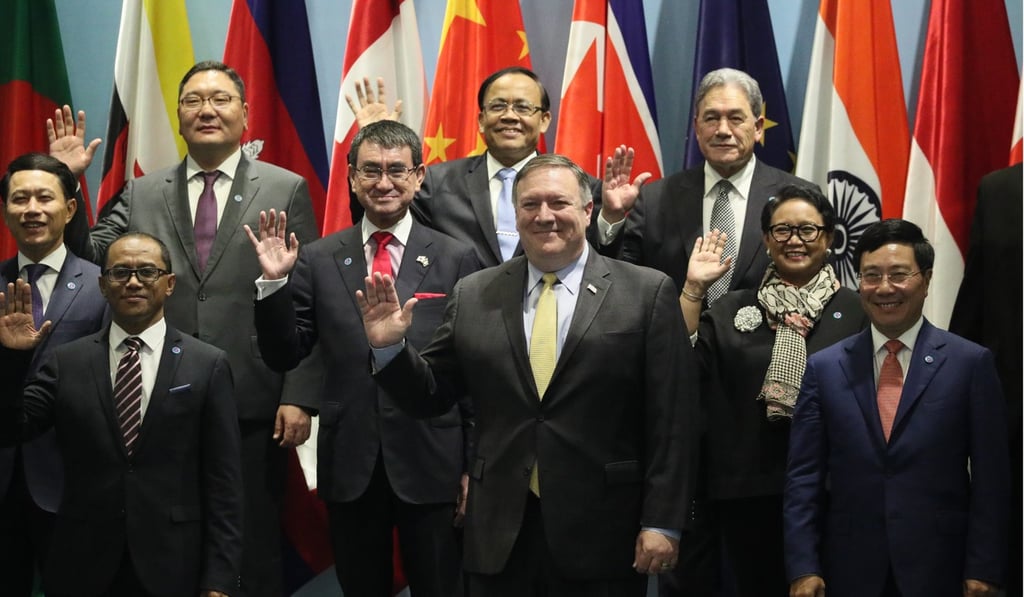Advertisement
America under Trump lacks the commitment to compete with China in Asia to defend the global order
William Choong says despite the challenge a rising China presents to the post-war security order, it is the Trumpian approach of excoriating allies and tearing up global rules that has the region worried. Recent efforts to reaffirm US commitment just do not go far enough
Reading Time:5 minutes
Why you can trust SCMP
0

When James Mattis, the US secretary of defence, took to the stage at the 2017 Shangri-La Dialogue in Singapore, the mood in the Island Ballroom of the eponymous luxury hotel was apprehensive. The Donald Trump administration was five months old, and the new US president had withdrawn from the 12-nation Trans-Pacific Partnership and sought to renegotiate Nafta.
But Mattis hit all the right notes about the sustainability of American power in the Asia-Pacific. Asked whether the United States was “present at the destruction” of the US-led post-war order, Mattis dodged the bullet by paraphrasing Churchill: “Bear with us. Once we have exhausted all possible alternatives, the Americans will do the right thing.”
Fast forward a year, and the Trump administration has made some headway in the region. In April, a bipartisan effort in Congress saw the introduction of the Asia Reassurance Initiative Act (ARIA) aimed at reassuring allies, deterring adversaries and securing US regional leadership.
Speaking at the 2018 edition of the Shangri-La Dialogue, Mattis stressed yet again that the interests of the US and the region are “inextricably intertwined”, singled out China’s “intimidation and coercion” in the South China Sea and called for a “free and open Indo-Pacific”.
At meetings of the Association of Southeast Asian Nations in Singapore recently, US Secretary of State Mike Pompeo announced a US$300 million package for security cooperation across the Indo-Pacific focused on maritime security, humanitarian help and countering transnational threats. He also announced a US$113 million investment into technology, energy and infrastructure initiatives.

Advertisement
Select Voice
Choose your listening speed
Get through articles 2-3x faster
1.1x
220 WPM
Slow
Normal
Fast
1.1x